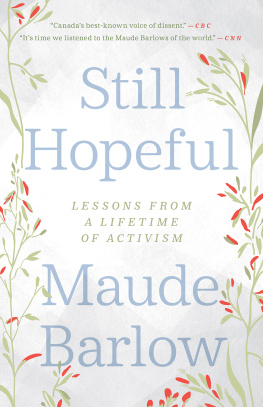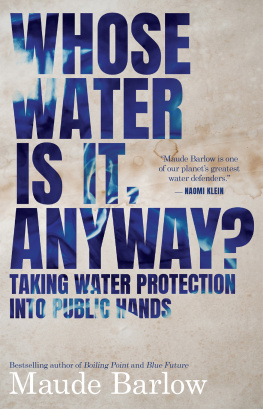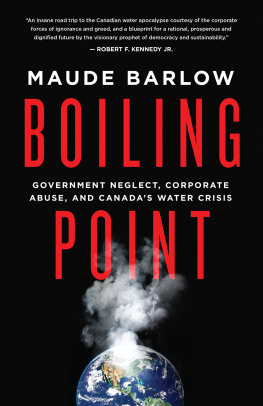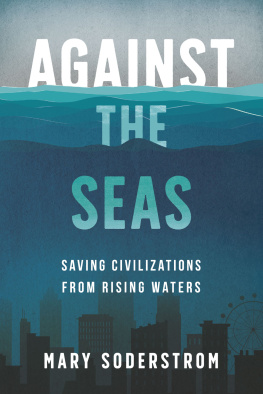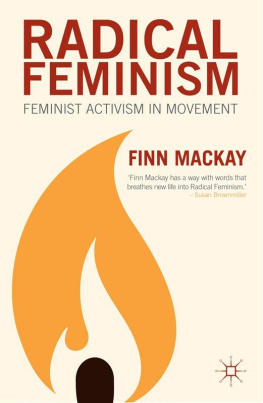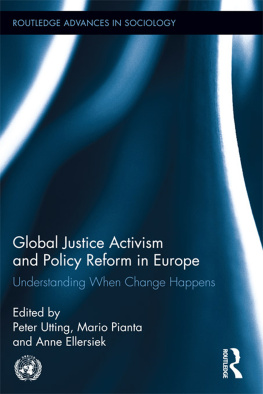When you are tired, learn to rest, not to quit.
Introduction
I thank You God for this most amazing
day: for the leaping greenly spirits of trees
and a blue true dream of sky; and for everything
which is natural which is infinite which is yes
E.E. Cummings
I have been contemplating the notion of hope for a long time. I have been a social justice activist for over 40 years and have found hope to be a prerequisite for creating change and inspiring others. Hope has been built into the DNA of my life.
I come from a family dedicated to social justice. My father was a pioneer in the field of criminal justice and led the fight against capital and corporal punishment in Canada. I have an early memory of watching him debate Canadas official hangman on black-and-white TV. Canadas hangmen were always known as Mr. Ellis, and they wore a hood to disguise their features.
With our morning oatmeal, my two sisters and I were taught that we owed something for the privilege of living in a place of such opportunity. We were taught that hope is a moral imperative, and it has been my lifelong mantra.
Recently, however, it has been getting harder to remain hopeful against the relentless tide of negative information that threatens to drown us in a sea of despair. It is hard to pass a day that we dont read of more fires, hurricanes and drought, each year hotter than the one before; the mass melting of the planets ice cover; the sixth great extinction; the devastation of insects, bees and birds; the destruction of rainforests and watersheds. We are entering a time of great economic uncertainty and devastating hardship for many millions of our fellow humans. Even before COVID exacted its terrible toll, the UN announced that three-quarters of the worlds workers are in precarious jobs, without pensions, security or even a livable wage. Now, with whole industries collapsing and countries facing alarming drops in their GDPs, fear is setting in for those who face a compromised future.
In my social justice work, it is getting harder to stay positive in front of my colleagues, many of whom are such experts in the details of the crises we face that it is hard for them to offer hope themselves.
The idea for this book came to me on a lovely June evening in 2019 in a packed Ottawa church. I was on a panel about the Green New Deal with David Suzuki, Avi Lewis and a few others. Some spoke in language that I can only describe as apocalyptic, the message hammered home that there are only ten years left of a habitable planet. I noted that there were a lot of young people in the audience, including my 16-year-old granddaughter Eleanor. In my presentation, I spoke of hope and about building movements and offered examples of winning campaigns.
This elicited some debate from the other panelists and a caution from Suzuki that we do not sugarcoat the facts. I have known, admired and worked with David for years and have watched him become increasingly and understandably frustrated with the glacial pace of change in the face of a worsening environmental crisis. Long a beacon of hope himself, he was angry this spring evening as were we all that the federal Liberal government had recently bought a pipeline and the NDP/Green coalition government of his home province of British Columbia was going ahead with the infamous Site C dam and an expanded fracking industry. Hope was in short supply in that Ottawa church.
After the event, a high school student came up to me in tears and thanked me for my hopeful words, saying she and her friends had sat devastated and paralyzed throughout the panel discussion until I spoke. What could they do in the face of such overwhelming evidence of ecological collapse, she asked. I had many ideas. On my walk home, the air fragrant with apple blossoms and lilac trees and the evening too lovely to feel anything but joy, I made a vow to help that young woman, and my grandkids, to find the path ahead.
How could I share what I have learned including all the mistakes in over 40 years of fighting for social and environmental justice? Do I and others of my generation have something to offer individuals and organizations working in equality, justice, democracy and environmental protection? Could we inspire young people to see that the life of an activist is a good life, one that gets you up in the morning thinking about more than yourself? Could we help arm them for the hard work and many disappointments ahead? Could we help them find the joy in the struggle to make a better world? Could we help them not to be overwhelmed with the enormity of the task ahead?
Standing under a newly leafed tree silvered by a new moon, I remembered the words of a PEI farmer friend who always said that when he is overwhelmed, he stops thinking of the enormity of the challenges he is facing and instead asks himself one simple question: What is the next appropriate step to take? Then he takes it.
Well, for me, the next appropriate step to take was to write this book. I offer it to you, with hope.
Chapter One
Give Hope a Chance
Do not be daunted by
the enormity of the worlds grief.
Do justly, now.
Love mercy, now.
Walk humbly, now.
You are not obligated to complete the work
But neither are you free to abandon it.
The Talmud
Coming out of a global pandemic and facing many crises, we need hope. Hope may not be for oneself, it may be for ones children, or ones childrens children. This is the story of so many immigrants and refugees who suffer great hardships in search of a new life for their families. But hope can also be for other peoples children and for the human family. Hope often defies logic and gives us the strength to continue when all the facts tell us things are hopeless. Hope helps us to put one foot in front of the other when despair would tell us not to move.
My fear is that the sense of hopelessness many people now feel makes them think that the situation itself is hopeless, leading to paralysis. In writing this book, I asked myself, What is hope? How has it sustained me through my life as an activist, and what lessons have I learned about the role of hope in my work? Still Hopeful is my best advice on how to keep hope alive, as Martin Luther King Jr. entreated us to do.
Distinguish between real and false hope
To start, I want to be clear that when I speak of hope, I am not talking about uninformed optimism what Plato called gullible hope. The ancient Greeks warned of the danger of espousing hope based on insufficient knowledge that could lead to poor decisions in war and politics. This is not a call for cheerful optimism nor a denial of the urgent issues that we collectively face. Certainly I have done my share of disseminating the distressing facts and statistics on the climate crisis and in particular the threat to the worlds water.
In his groundbreaking three-volume work, The Principle of Hope, published in the 1950s, the great German philosopher Ernst Bloch saw all of human history as the story of hope for a better future. Deeply marked by the two world wars and the class struggles and divisions within his own country, Bloch distinguished between what he called fraudulent or false hope and genuine hope, which, to be effective, needs to be stoked by informed discontent. False hope, he warned, is often used by governments to tamp down dissent among the marginalized and can find us staring at a blank wall, blind to the door that may be close.

